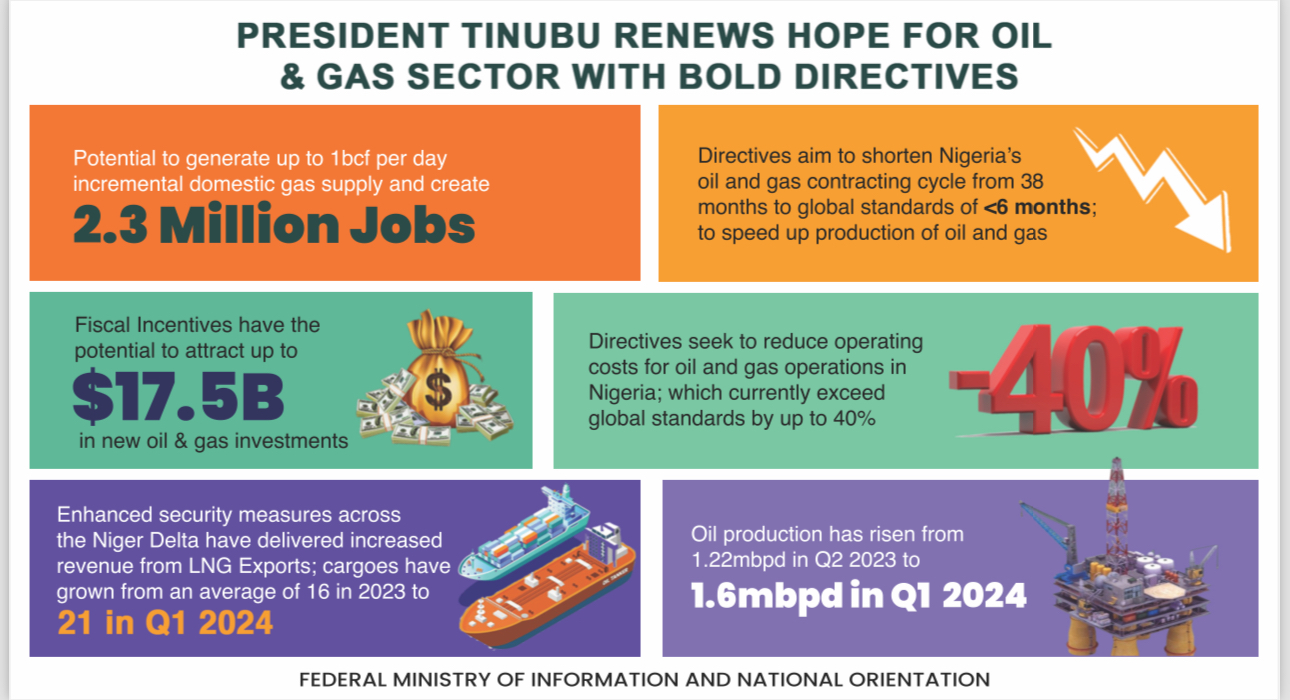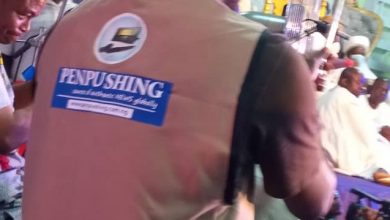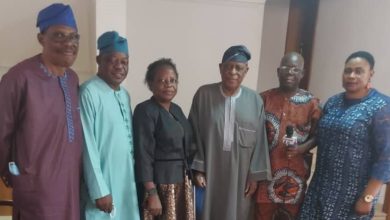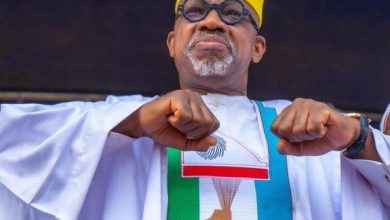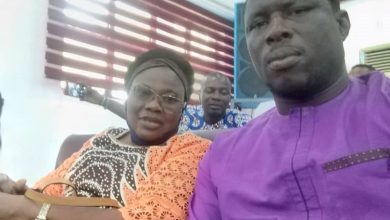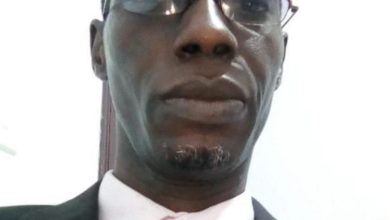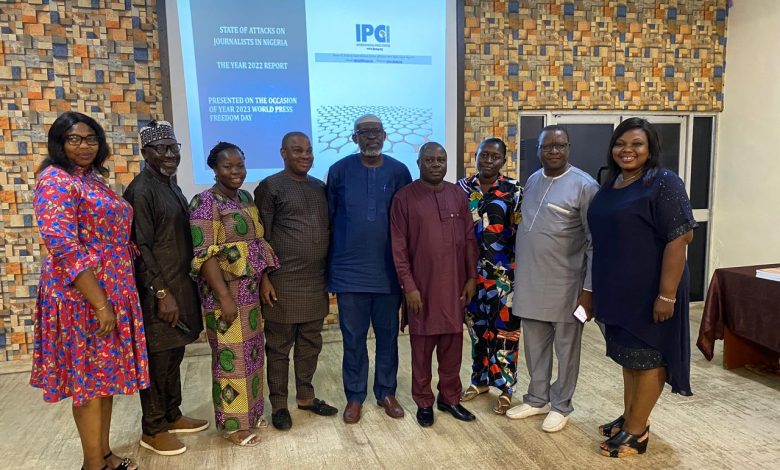
Nigerian journalists converge to chart way forward on safety of practitioners
The Nigerian Journalists on Friday converged in Ibadan, Oyo State Capital to address safety of the media practitioners and protecting freedom of expression in the age of misinformation and disinformation.
Penpushing reports that the stakeholders’ forum was organized by the International Press Centre (IPC) in collaboration with Open Society Foundations (OSF) and had in attendance journalists from both print, electronic and online media
The Executive Director of International Press Centre (IPC), Lanre Arogundade in his welcome remarks explained that the overarching framework for the establishment of the Centre for Safety and Protection of Journalist (I-CSPJ), is the strategic objective of expanding the frontiers of press freedom in Nigeria and Africa of which the safety of journalists is an integral part.
‘It is predicated on the theory of change that it is possible to have a regime of press freedom within the context of the right to freedom of expression both of which take their roots in the right of the citizens to know’, Arogundade said
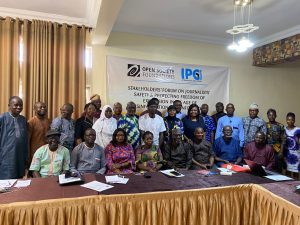
‘As the theme of the World Press Freedom Day (WPFD) 2023 indicates, the right to freedom of expression, in which press freedom is embedded, is the harbinger of other human rights. The theme says: Shaping a future of rights: Freedom of expression as a driver for all other human rights’.
Penpushing further reports that the goal of Centre for Safety and Protection of Journalist is to contribute to that future of rights by advocating and promoting the safety of journalists and creating awareness on the imperative of protecting journalists especially as they serve as frontline workers during crisis or emergency situations.
The Executive Director explained background of the forum as include the rights and safety of journalists in Nigeria, noting that online and offline have over the past two decades been at the core of the activities and engagements of the International Press Centre.
‘In the course of working in the relevant thematic areas, IPC has introduced a number of significant initiatives including the The Nigerian Journalists Internet Rights Initiative (NJIRI) and establishment of the Safety of Journalists Alert Desk’, he added.
‘Through these initiatives and others, IPC has also been involved in the monitoring and documentation of attacks on journalists, publication of annual reports on the safety of journalists (that of 2022 will soon be presented), issuing of safety advisories including during the Covid-19 lockdown and the 2023 general elections and various campaigns and advocacies all aimed at curbing the scourge of attacks/assaults on journalists and other media professionals and media outlets’.
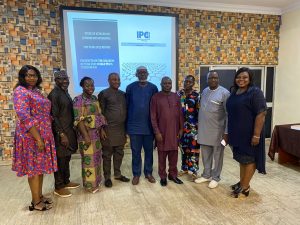
‘The I-CPSJ is a product of the experience gathered in the course of embarking on press freedom activities by IPC. The major lesson is that the advocacy and campaign for safety and protection of journalists need to be done at an institutional level for impactful engagement, the building of sustainable partnerships and the attraction of the enormous resources that would be required to make the endeavour a success’.
‘In other words, through I-CPSJ , we are taking a deliberate but measured step to expand the scope of and seek more impactful results of our press freedom work as it relates to the safety and protection of journalists’.
‘To ensure effective implementation and coordination of the Centre, a coordinator has been appointed with the task of positioning the CSPJ to strategically coordinate initiatives to respond to the challenge of addressing the worsening state of the safety of journalists and Press freedom in Nigeria’.
Penpushing also reports that Vice President Nigerian Guild of Editors (NGE) South, Bolaji Adebiyi who was a lead discussant at the forum in his remarks pointed out that lots of issues needed to be tackle to address plights of journalists in the country
The veteran journalist noted that there has been tendency to assume that government is only obstacle to press freedom, adding that investors are also major contributing factor to hindrance to press freedom in the country

‘There is tendency to assume that government is only obstacle to press freedom.Investors in media are also threat to freedom of press. It is an issue to be discussed in the industry and major stakeholders’, Abdebiyi emphasized
‘Lots of issues need to be addressed. Journalist who does not get paid, how can he aligned with ethics. These are issues to be addressed and discussed in-house, before addressing threat by government’, he added
Penpushing reports that at the stakeholders forum keynote presentation with the theme, ’Protection Freedom of Expression in the Age of Misinformation and Disinformation’, was delivered by Prof Tokunbo Adaja, Dean College of Humanities and Social Sciences Koseph Ayo Babalola University(JABU), Ikeji-Arakeji in Osun State.
The Chairman Nigeria Union of Journalists (NUJ), Oyo State Council, Ademola Babalola in his own contributions as a discussant, said the topic of the programme was apt to discuss, agree and come up with a roadmap on the way forward for press freedom in Nigeria.

Penpushing further reports that he posited that if freedom of expression must be protected, then, all efforts must be emplaced to eliminate or reduce to the barest minimum the high rate of misinformation and disinformation, which is also known as fake news.
‘The Freedom of Expression is the inalienable right of every Nigerian. It is the right to express views aloud. It can be through public protest and demonstrations, or through published articles, books or leaflets; television or radio broadcasting; works of art; the internet and social media. The law also protects the freedom to receive information from other people by being part of an audience or reading a magazine or newspaper, listening to the radio, watching television, reading information on social media and so on’, he noted.
Penpushing also reports that Babalola explained that the freedom of expression is guaranteed by Section 39 of the 1999 Constitution of the Federal Republic of Nigeria (As Amended), which stated that every person shall be entitled to freedom of expression, including the freedom to hold opinions and to receive and impart ideas and information without interference.
The number one journalist in Oyo State pointed out that this guarantees freedom of expression and the freedom to hold and express opinions and information without interference from anyone, stressing that without prejudice to the generality of subsection (1) of this section, every person shall be entitled to own, establish and operate any medium for the dissemination of information, ideas and opinions.
Penpushing further reports that Programme Officer of International Press Center (IPC) Melody Akinjiyan who presented 2022 report on the safety of journalists and dimensions of press freedom violation, said the worrisome trend of the violation of the rights of journalists and the media in Nigeria continued in the year 2022.

‘In this regard, the Safety of Journalists Alert Desk of the International Press Centre (IPC), Lagos – Nigeria documented not less than sixty-six (66) incidents of attacks affecting journalists and other media professionals’.
‘The attacks range from unlawful arrests/detention, physical assaults, threat to life, abduction, invasion, threat to sanction, media shutdown, robbery, hacking of social media account, threat to disclose source, denial of access to information, and murder’.
‘The report on the state of attacks on journalists and media in Nigeria (2022) was generated through desk research and monitoring by IPC’s Safety of Journalists Alert Desk complemented by the field reports of press freedom monitors engaged by IPC in each of the country’s six geo-political zones’.
‘The collated information was then subjected to verification especially through the affected individual journalists and news mediums after which they were analysed to determine the location of the incident, the types of attacks, the alleged perpetrators, the gender of the victims, the type of media organisations affected, the injuries or losses suffered, and the remedies sought, if any’.
‘The attacks occurred in the six geo-political zones of the North West (NW), North Central (NC), North East (NE), South West (SW), South East (SE) and South South (SS). The states where they occurred, and the number of incidents include: Zamfara, Jigawa and Kaduna (NW) – Four (4); FCT Abuja and Kwara (NC) – Sixteen (16); Gombe, Taraba, Adamawa and Bauchi (NE) – Six (6); Lagos, Ondo, Osun, Ogun and Oyo (SW) – Twenty-six (26); Enugu (SE) – Four (4); and Bayelsa, Delta, Edo and Cross River (SS) – Ten (10)’, she said
FOOTNOTE: You want to share story with us? You want to advertise with us? You need publicity for product, or service, or event? Contact us on WhatsApp +2348073463653 or email [email protected]

